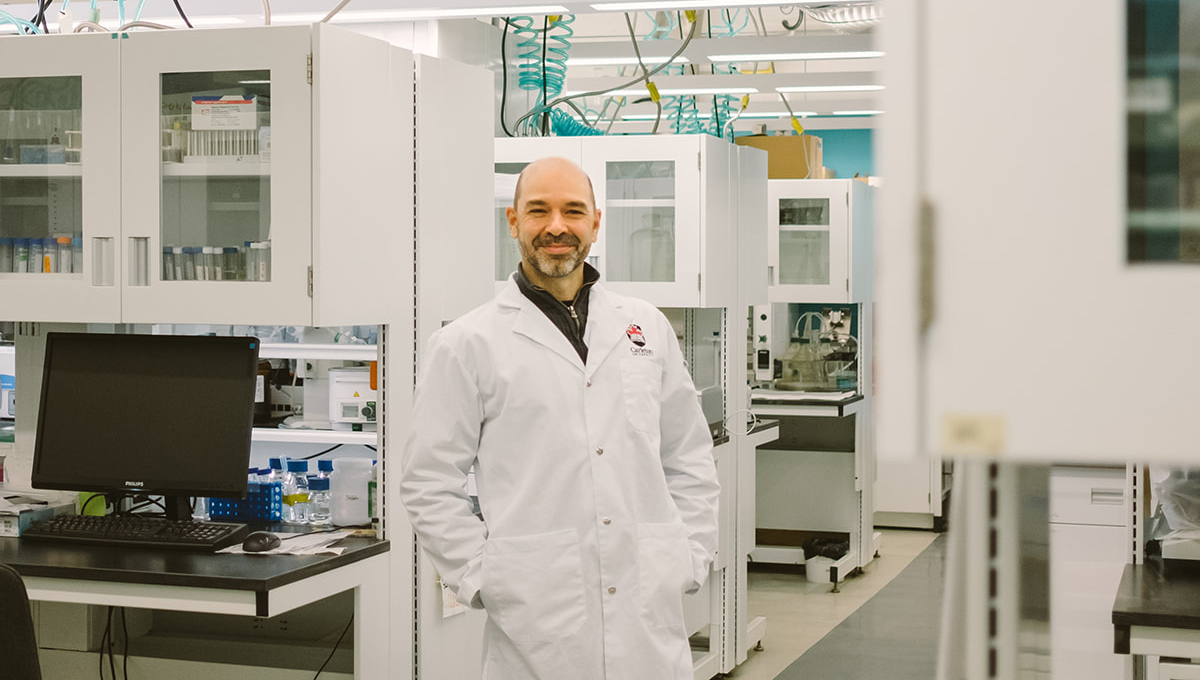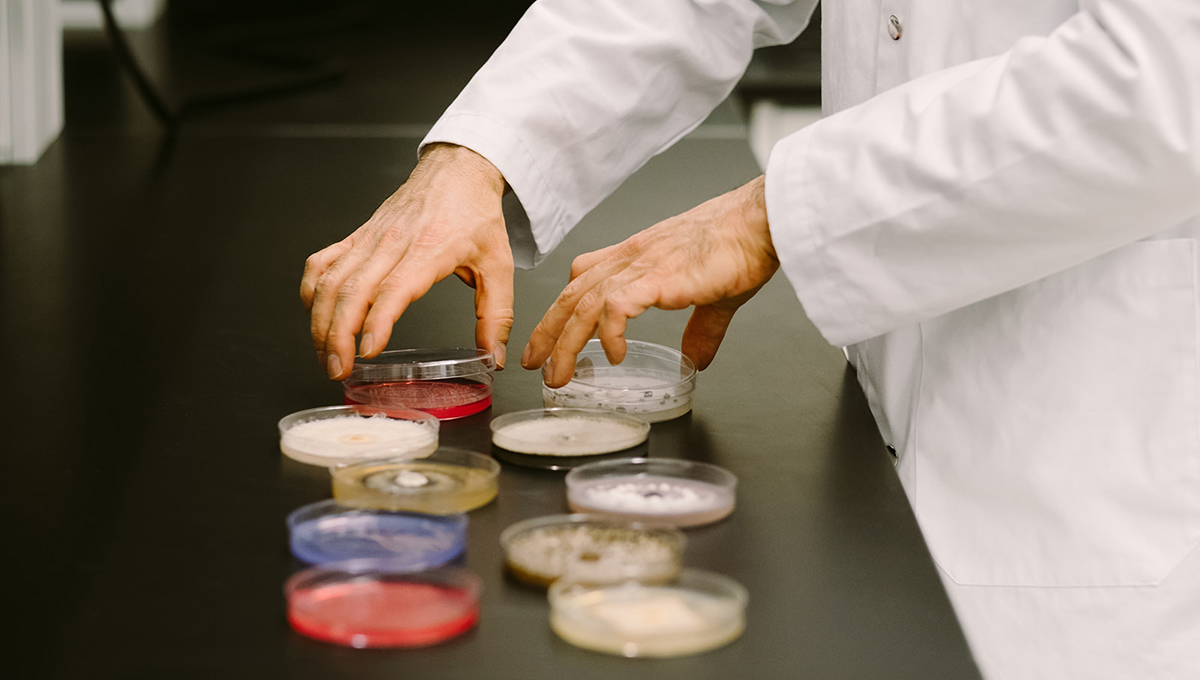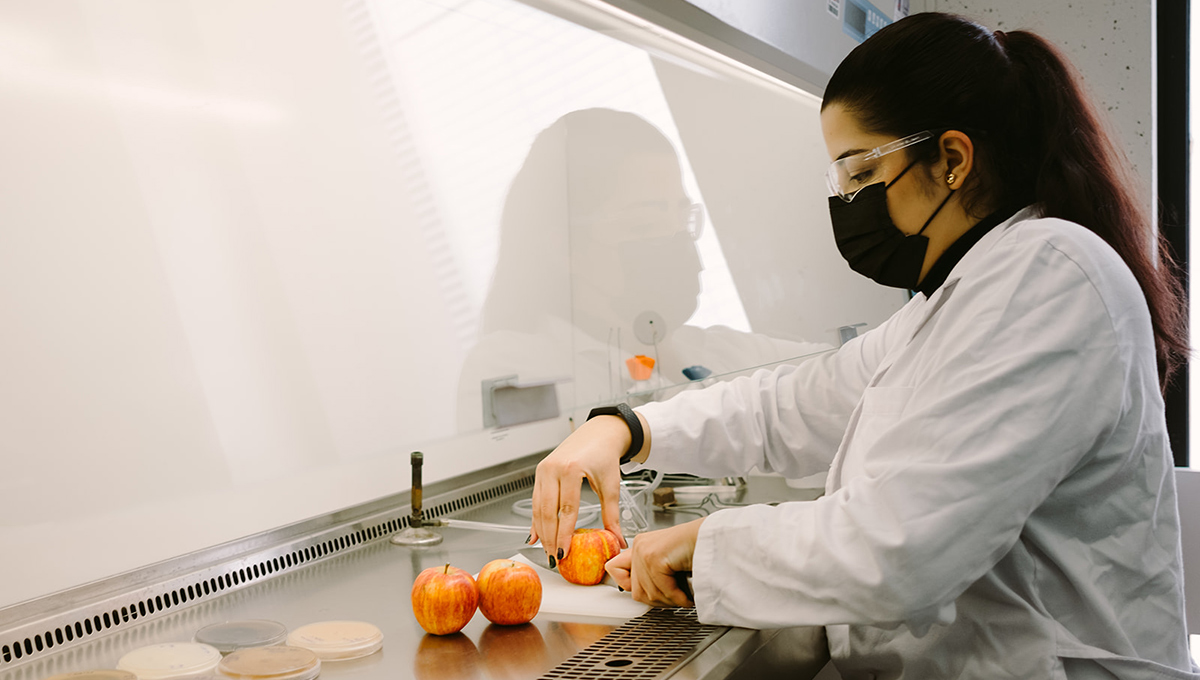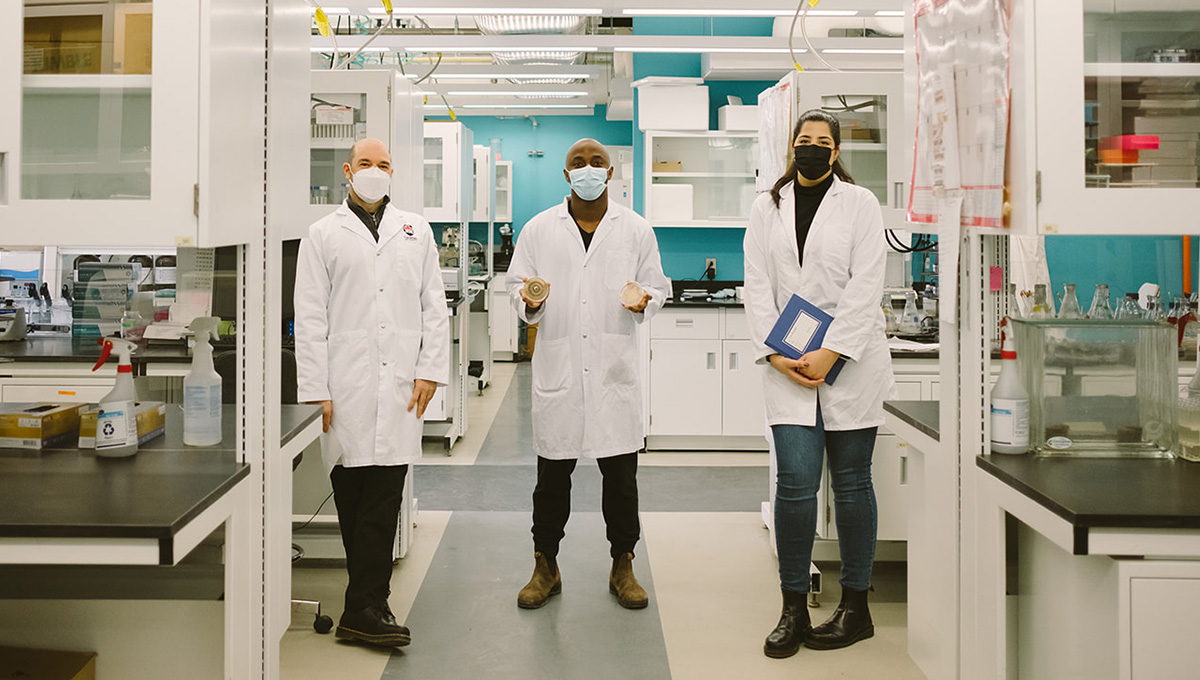By Dan Rubinstein
Photos by Melanie Mathieu
Roughly 50 per cent of all food produced in Canada is thrown away before it reaches anyone’s plate.
From the day a crop is planted through the harvesting, processing, distribution and storage stages, myriad problems can arise, including pests, mould and preparation waste.
As climate change and supply chain bottlenecks make it more challenging to grow fruits and vegetables and get them to market, the term “food security” has become commonplace.
Reducing spoilage is one the most effective things we can do to ensure access to healthy and affordable food, says Carleton Chemistry researcher Tyler Avis, director of Carleton’s Institute of Biochemistry and a founding faculty member in the university’s Food Science program.

Prof. Tyler J. Avis
Avis and his team are exploring the use of beneficial microorganisms to outcompete the bacteria, viruses and fungi that damage or destroy plants.
This biocontrol method promises to not only protect crops, it can also extend the shelf life of produce. At the same time, it may reduce our reliance on some of the successful but sledgehammer-like synthetic chemical pesticides that are common in agriculture but have negative impacts on our health or the environment.
“We all have to eat, but there are more and more people on the planet and less and less agricultural land,” says Avis.
“Yet, when you’re talking about food security, you also have to consider the harmful chemicals that we use to grow and protect fruits and vegetables, which are partially destroying the planet. There has to be a better way.”

Stopping Bad Moulds in a Sustainable Way
Avis started down this research path as an undergraduate, developing an interest in how plants and microorganisms interact with one another.
By the time he got to grad school, he was trying to figure out how to stop so-called “bad moulds” from getting onto plants and ruining food before we have a chance to eat it.
At Carleton, where Avis joined the faculty in 2008, just as the Food Science program was starting, his lab has continued to investigate novel control measures—beneficial microorganisms, purified natural antimicrobial compounds, and microbial and plant extracts—that can supplant chemicals used on crops and during food storage.
For example, rather than use soil fumigants when planting, which essentially kill everything that might harm crops but leave a void that other harmful pests or pathogens can fill, beneficial microorganisms create a more balanced environment in which the plants can prosper.
“It’s a more nuanced approach,” says Avis.
“We’re talking about using microorganisms that are already in the environment. We’re just potentially adding more of them to create a slightly different system.

“If they don’t have any competitors, they don’t have to increase their numbers to defend themselves and their habitat. We’ve done experiments showing that in the absence of a competitor, they remain relatively inactive. But if there’s a pathogen that could destroy a plant, the microorganisms go to war against it. And if they win, they kind of have an off switch and they just remain there and wait.”
In his lab, Avis has been looking at different strains of spore-producing Bacillus bacteria, as well as other microorganisms. They can be put into one side of a Petri dish with a mould on the other; if the mould stops growing, the strain is a good candidate for further investigation.
He also does experiments in fields and storage units. Tomatoes, carrots, potatoes, cucumbers, strawberries, blueberries, peppers and other produce can be sprayed with solutions containing non-toxic microorganisms to see if the exposure extends the amount of time they remain edible.
“Fruits and vegetables tend to be the foods that spoil the fastest,” explains Avis.
“Just like us, pests and pathogens want the sugars, the vitamins, the minerals.”
Some microorganisms are already in use as agricultural control agents. Others are in the testing and regulatory approval pipeline, a case-by-case process that can take around a decade to ensure they’re safe and effective.

Carleton’s Interdisciplinary Food Science Program
This research is part of an interdisciplinary Food Science program at Carleton—aligned with government priorities such as food security, safety and quality—that involves faculty and students working and studying not only sciences like chemistry and biology but also engineering, business and public policy.
“Together, we’re trying to find ways to make our production practices more sustainable and make our food more nutritious,” says Avis.
“My research fits this goal because if you reduce waste, you have more food.
“Some of my colleagues are working on reducing greenhouse gas emissions from agriculture and turning agricultural waste into valuable byproducts. We’re not trying to make the next plastic-wrapped cheese slice. We want to address and train students to take on environmental and health challenges.”
Wednesday, March 16, 2022 in Environment and Sustainability, Faculty of Science
Share: Twitter, Facebook



